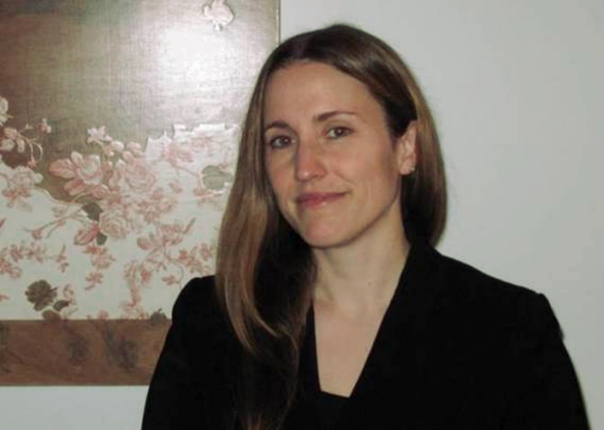In April 2020, Genome Canada launched the Canadian COVID-19 Genomics Network, also called
CanCOGeN. ln less than two years, Network members have connected diverse partners across health care, academia, public health laboratories, genome sequencing centres, and the medical industry.
The aim of this network was to establish a coordinated pan-Canadian resource during the pandemic that could, among other activities, inform time-sensitive and critical decision-making and support data sharing.
“The Network has the involvement of many researchers and public health team members in the PHSA community,” says Holly Longstaff, director, Privacy and Access, PHSA Research and New Initiatives, “I was not involved from the beginning, but many of the research and public health folks from around PHSA were involved in the Network from the start, helping to lead this effort.”
Holly explains that there are two key projects that form the CanCOGeN initiative. “VirusSeq” is focused on supporting efforts to sequence the virus and sharing these datasets, while “HostSeq” is focused on sequencing the host (the patient), and sharing these datasets.
CGEn, a federally funded national platform for genome sequencing and analysis, is leading HostSeq and is working with partners across the country.
“I am the chair of the HostSeq Data Access Committee," Holly notes, “This initiative is a perfect example of what is truly possible for sharing even the most sensitive of data if all those involved are working hard and pulling in the same direction."
The ethics of sharing data
Very few readers will not have encountered discussions about sharing of health data – especially in the last few years.
“I think it is well understood now that
not sharing data is unethical,” Holly says, “I would say that we have a moral obligation to share data with those who need it to serve all patients.”
“Inaction is not value-neutral. Our inability to get our researchers the data they need when they need it can lead to disastrous consequences for patients.”
Holly notes that the bioethics community has, for many years, called for transition from individual sets of data collected only by consent to a wider system of good governance over all collected information.

Photo: Holly Longstaff, director, Privacy and Access, PHSA Research and New Initiatives
“It’s no longer about individualistic notions of consent, which don’t work with big data or big biobanks,” she noted in a profile interview with Genome Canada. “Instead, it’s consenting to a model of good governance and an understanding that all data will be used to improve our systems to ensure the highest possible quality of care for everyone…If you depend solely on consent, we can’t get whole populations to participate in research. This is absolutely essential if we are going to move research forward in an equitable manner.”
The COVID-19 pandemic is a good example of the need for broader sets of data. According to Holly, health systems are not currently giving consent for every individual use of data. The systems are collecting everyone’s data in a secure, privacy-preserving way for the betterment of all people.
“But that [data] has to be carefully regulated and governed to ensure that these uses are appropriate, and that the public good is always what you are marching towards."
Addressing misinformation
How can PHSA staff and the health care community help curb the misinformation currently circulating about sharing research data and research ethics?
“Well, I think that despite the understanding that we have a moral obligation to share data for good and ethical research, many have been worried about how to actually do it,” Holly notes. “Certainly, nobody wants to be the test case that blows up and erodes public trust in our systems.”
If issues arise, PHSA staff members can direct patients and members of the public with questions to
Genome Canada (CanCOGeN), which posts clear and straightforward answers and reliable, accessible information.
“CanCOGeN has put a lot of effort into its public-facing materials. The website shows how securely sharing data, ethically, is possible and all its processes, agreements, and more could be used in other scenarios – with a few tweaks,” she explains.
Sharing health data at PHSA
At PHSA, privacy and security form the basis of ethical sharing of data. The DARE (Data, Analytics, Reporting and Evaluation) program is implementing an organization-wide data analytics strategy, which includes a strong data governance component. To ensure that appropriate safeguards to protect data privacy and security are in place, DARE works closely with programs throughout PHSA, legal and privacy services, and the Research and Academic Services team, according to Michael Coss, director for Data Governance.
“Two of PHSA’s governance principles that relate to CanCOGeN are that data only provide value to our patients and the residents of B.C. when they’re made available for use, and that research is a core function for PHSA to meet its mandate and must be supported through streamlined processes.”
Both Genome Canada and PHSA’s data governance efforts reflect an overall shift in the way that health organizations are seeing their responsibilities with respect to data. Previously, privacy and control were the main goals of data governance efforts. PHSA now recognizes data as an enabler of improved health outcomes, both at the individual and the population level, and has processes in place to ensure that data is ready for analysis in secure and safe environments.
“Our vision is that data is trusted, discoverable, and well documented. We have clear processes for requesting data and have a consistent approach to decision making on those requests with the support of PHSA programs,” Michael adds. “As we move forward, secure, trusted analysis platforms will enable greater access to anonymized data with controls in place to ensure that it is shared and used within the governance boundaries, and are supported by robust auditing functions.”
“If you can find a way to carefully share sensitive sequencing data in a secure way with researchers from across the country,” Holly concludes, “you can do anything.”
Resources

